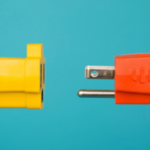Loneliness was a growing, global concern well before the COVID-19 pandemic disrupted the way we connect with one another. The number of Australians who report feeling lonely went from one in four pre-COVID to one in two amid lockdowns, and increased disconnection and loneliness have continued despite the loosening of restrictions.
It’s critical we collectively and individually address the issue of loneliness, which is linked to premature death, poor physical and mental health, and lower life satisfaction.
Men and loneliness
Men tend to report higher levels of loneliness than women, with 39% of men living alone experiencing loneliness and one in three men believe that there is no one to help them out if they’re in need.
Half of the Australian male population think that they have many acquaintances but not as many real friends as they would like and 37% of men are not satisfied with the quality of their relationships.
The truth about feeling lonely
People experience loneliness when they lack a sense of connection with others. It can feel like a sense of isolation; other times, it just feels like no one is listening. Loneliness can be caused by mental, emotional, and physical factors, and it can happen even when you’re surrounded by other people. The statistics show that ironically, you’re not alone in feeling lonely.
“Feeling lonely now and then is normal, but can become a bigger problem when it’s unaddressed.”
– Irene Verins, Mental Wellbeing Manager at VicHealth.
Physical isolation, like what many Australians have experienced over the last few months, can impact well-being and exacerbate loneliness. It can be especially challenging for those who live alone or far from family.
“Loneliness can lead to people experiencing cycles of social isolation, anxiety, and depression. It’s also really hard to talk about, and people often don’t comfortable discussing it with their friends or family.”
Taking steps to reconnect
“Set realistic expectations around your social life, as it’s natural for friendships to ebb and flow. It’s possible to take steps on your own to manage how you feel, but many people find it beneficial to work through their loneliness with a professional therapist,” Verins says.
It’s important to remember that loneliness is common and normal — you’re not alone. And just a single positive step can help you to reconnect with people around you.















